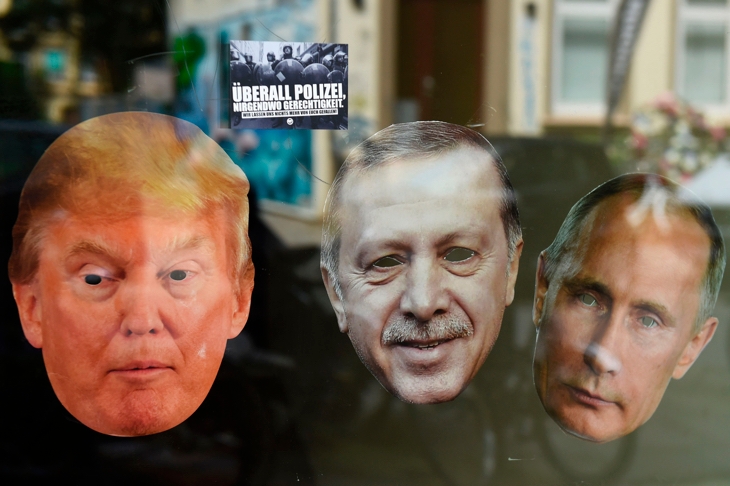G20 summits are usually dreadfully dull affairs, but this week’s global chinwag in Hamburg should be refreshingly feisty. No conference with Donald Trump, Vladimir Putin and Recep Tayyip Erdogan in attendance could ever be described as boring, and although President Trump’s first meeting with Putin will provide the main photo opportunities, there are plenty of other potential flashpoints – not least the toe-curling relationship between Trump and his host, Angela Merkel.
Merkel will discuss trade and climate change with Trump – two subjects about which these two leaders seem destined to disagree. No US President has been so dismissive of climate change; no US President has been so hostile to German trade. For her part, Merkel’s wriggle room is constrained by the forthcoming German elections. She’s already in campaign mode, and so is her main rival for the Chancellorship, Martin Schulz. The new SPD leader has been one of Trump’s fiercest critics, and though Merkel’s instincts are more conciliatory, with the election two months away she can’t afford to let Schulz corner the Anti-Trump vote.
As if a showdown with The Donald wasn’t enough to keep Merkel busy, she also has to deal with Turkey’s President Erdogan. Germany has a large Turkish population, the Bundesrepublik’s biggest ethnic bloc, and the relationship between the Federal Republic and its several million Turkish inhabitants has never been easy. For a long time, many of them were denied full citizenship rights, and though German Turks have recently become more integrated, particularly in sport, culture and the media, problems of isolation, deprivation and radicalisation persist. Erdogan wanted to address a rally of German Turks during his visit to Hamburg, but the German government said no. Ever the diplomat, Erdogan accused Germany of ‘Nazi-style’ behaviour (even though the Chairman of Germany’s Turkish Community supported the Bundesrepublik’s stance).
Another potential source of fireworks is Merkel’s chosen location for this summit. Staging these talks in Hamburg is deeply symbolic on several levels. The city where she was born (before her father took his young family to East Germany), Germany’s biggest port has always been its gateway to the world. A bastion of free trade ever since the Middle Ages, it was one of the leading Hanseatic Ports – a transnational trading confederation which anticipated the EU. It’s always been Deutschland’s most liberal, international city, the centre of its print and broadcast media. Where better to hold a summit championing free thinking and free enterprise?
Unfortunately, the choice of Hamburg as a location is beset with practical problems. Germany’s last two G7 summits were held in Heiligendamm and Schloss Elmau – two remote rural hideaways which were relatively easy to cordon off from protestors. Conversely, this summit will be held in the heart of Germany’s second city, a sprawling metropolis with a significant radical and anarchist subculture. Twenty thousand police will greet up to 10,000 protestors, employing dogs, horses, helicopters and five miles of steel barriers. Police have already used water cannons to clear the grungy Schanzenviertel district. The working title for these protests is Welcome to Hell. In these days of heightened security and heightened terrorist concerns it’s a stiff test for any security force, and the inevitable clashes between armoured riot police and furious refuseniks may not result in quite the sort of media coverage which Merkel’s reelection campaign requires.






Comments